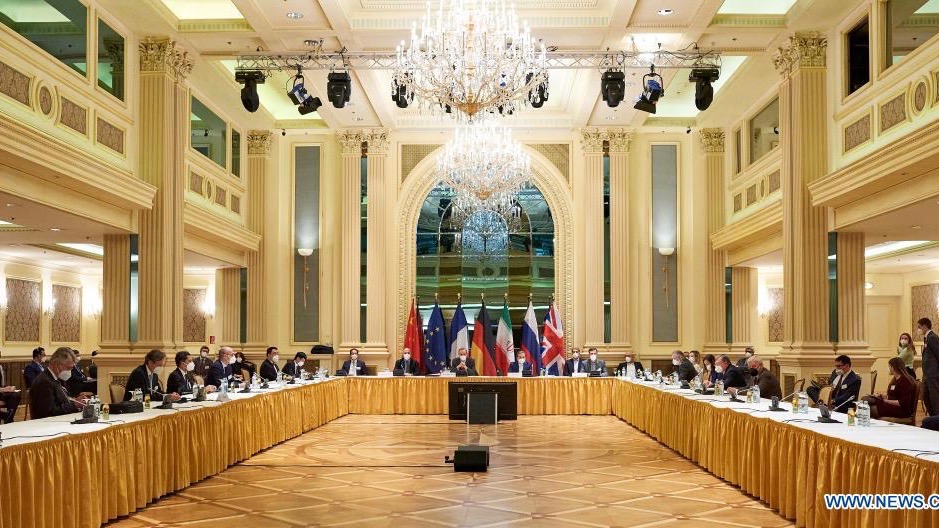In yet another admission of its direct role in the attacks on Iranian nuclear sites and assassination of Iranian scientists, Israel rejected a warning issued by its closest ally, the US, against such attacks in the future. The US warning and Israel’s response came days before the resumption of the seventh round of the talks in Vienna to revive the Iran nuclear deal on November 29 after a halt of over five months.
On Sunday, November 21, at a conference in Bahrain’s capital Manama, the differences between Israel and the US on the Iran nuclear deal were publicly aired by the representatives of both the countries. Israel’s national security advisor Eyal Hulata reiterated Israel’s long-term stand, openly threatening that Israel will continue to carry out attacks on Iranian nuclear facilities to prevent it from acquiring nuclear weapons capability.
Hulata was responding to comments by the US representative, president Joe Biden’s senior Middle East advisor Brett McGurk, who said military action may damage Iran’s nuclear facilities for a while but won’t prevent it from achieving its goals, and that talks are the only way to resolve the issue at the moment.
This is the second such report in the last couple of days. According to a report in The New York Times, the US had secretly advised Israel against carrying out attacks on Iranian nuclear facilities, calling it counterproductive. Israel has downplayed such warnings.
Iran has accused Israel of violating international laws and Iranian sovereignty by indulging in various attacks on its nuclear sites since the US withdrew from the Joint Comprehensive Plan of Action (JCPOA) or the Iran nuclear deal in May 2018 and imposed unilateral sanctions on Iran
Iran has also accused Israel of assassinating its top nuclear scientist, Mohsen Fakhrizadeh, in November last year.
Israel has openly opposed the JCPOA since it was signed in 2015 by the US and Iran along with the UK, France, Germany, China and Russia. Israel has accused Iran of building an atomic bomb, which Iran has always denied. Iran claims that its nuclear program is peaceful in nature and that the country is ideologically opposed to the concept of a nuclear bomb.
Unlike Iran, Israel is not a signatory to the Nuclear Non Proliferation Treaty (NPT) and possesses nuclear weapons. Defying all international norms, Israel has a policy called the Begin Doctrine which allows pre-emptive strikes on nuclear sites of supposed “enemy” countries.
In 1981, Israel attacked an Iraqi nuclear facility at Osirak and destroyed it. Though the attack was condemned by the UN Security Council in its resolution 487 of June 1981, no punitive measures were taken against the Israeli violations of international law.
Vienna talks
Israel is opposed to the indirect talks being held in Vienna between the US and Iran through the remaining signatories of the JCPOA in order to revive the nuclear deal. Israel has called the deal favorable to Iran and claims that it does nothing to prevent Iranian ambitions in the region. Israel was instrumental in persuading the US administration of Donald Trump to withdraw from the deal. Though the new Biden administration wants to rejoin the deal as the best way to curb Iran’s nuclear ambitions, it does not want to completely ignore Israel.
The talks in Vienna are set to resume after almost five months on November 29 when the new Iranian negotiating team will present its views on the draft agreement achieved in June this year. The talks were delayed due to a change in the Iranian government after the elections in August to allow Ebrahim Raisi to form his new administration.
Meanwhile, Ali Bagheri Kani, Iran’s chief negotiator in Vienna, in an interview with Al-Jazeera on Monday asked the US to accept the reality of the situation and adhere to its commitments under the JCPOA “overcoming domestic considerations.” He also reiterated the Iranian stance that the US must first come to full compliance under the JCPOA and lift all sanctions imposed illegally against Iran in violation of UNSC resolution 2231 if it wants Iran to go back to its commitments under the deal.
Iran started scaling back its commitments under the JCPOA after a year of the US withdrawal and the failure of other signatories to maintain the provisions of the deal. Iran has assured that once the sanctions are lifted and the US rejoins the deal, Iran will revert back to its original commitments.
The Biden administration has however hinted that it does not want to lift all the sanctions imposed on Iran following Trump’s withdrawal but wants Iran to comply fully with all the provisions of the JCPOA. The US has also threatened that “all options are on the table” if the Vienna talks fail to resolve the issue, and has demanded Iran to agree to its proposals claiming that “time is running short.” Iran has rubbished such pronouncements as “threats” and called the US attempts to maintain the sanctions a continuation of Trump’s failed maximum pressure campaign.





